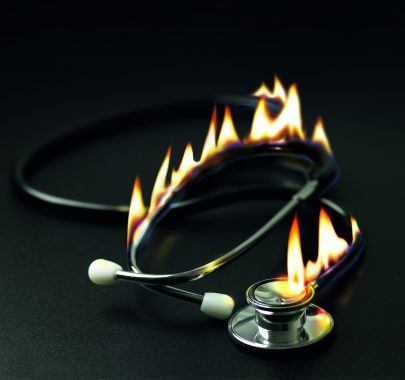Mentoring scheme helps around 100 burnt out GPs continue practising

Exclusive Some 100 GPs suffering from burnout may have been persuaded to stay in the profession through a new mentoring scheme, its GP lead has revealed.
The Health Education England scheme, which has to date been run in three areas in the East Midlands, helps GPs who are struggling with burnout and considering leaving the profession by pairing them up with former GPs who are trained in mentoring.
Already, around 100 GPs in Derbyshire, Nottinghamshire and Lincolnshire have used the GP-S peer-mentoring scheme since it was set up 18 months ago.
According to the scheme’s GP lead in Derbyshire, Dr Ilona Bendefy, the scheme’s success has attracted interest from other areas, with GPs in Shropshire, Staffordshire and Leicestershire looking to expand it into their areas.
Dr Bendefy said that out of the GPs that have provided feedback after taking part in the scheme, all decided to remain in general practice with some choosing to work in a different way.
She said that after the mentorship programme, some GPs stop being a partner and become a salaried GP or only work part-time, while others remain in their partnership but reduce the number of sessions they do.
She told Pulse: ‘It’s almost like they can’t make that move until they’ve talked it through with a peer and given themselves permission.’
She said the scheme was set up to ‘catch people before they reach these ultimately difficult stages and put the joy back into work’.
The scheme, which works alongside the GP health service, sees GPs go to four two-hour sessions over six to 12 months.
Dr Bendefy said GPs undertake the programme because they feel they are ‘at a crossroads and they don’t know where to go next’.
She said: ‘So it can be both for motivation, to get the enjoyment out of work and that feeling of satisfaction, what they went into medicine for, but it can also be sometimes careers advice.’
The rise in demand for the scheme has seen the number of mentors increase from 10 to 30, all of whom are trained GPs that have since been involved in training and education.
Dr Bendefy would not comment on the amount of funding that GP-S has recieved from HEE as it has varied each year.
But she said if a GP is very depressed, the mentor can refer them to the GP health service.
It comes as NHS England has also launched a 12-month GP retention pilot for over-55s thinking of leaving the profession, offering them flexible working models, such as providing cover for other practices, taking on certain expert roles or becoming trainers or mentors, for example.
It also launched a GP Health Service in January, with 509 GPs seeking help in the first four months.
Workload taking a toll
A recent UK study found that older doctors working in the NHS need support to avoid developing ill health at the later stages of their career, with GPs more likely to suffer work-related ill health than hospital doctors.
In response to the first-ever GP burnout survey in 2013, Pulse launched its Battling Burnout campaign that won a pledge to fund occupational health support for all GPs in England. In 2015, a new survey of over 2,000 GPs found that half were at high risk of burnout.
Anxiety, depression and post-traumatic stress disorder are the most common conditions seen by the health service, which was rolled out nationally earlier this year with NHS England funding.
More than one in four GPs work more than what is deemed safe limits on working hours every week, according to a Pulse survey, and the RCGP launched a campaign last year to combat GP fatigue by encouraging GPs to take breaks, titled ‘A rested GP is a safer GP’.
Pulse July survey
Take our July 2025 survey to potentially win £1.000 worth of tokens











